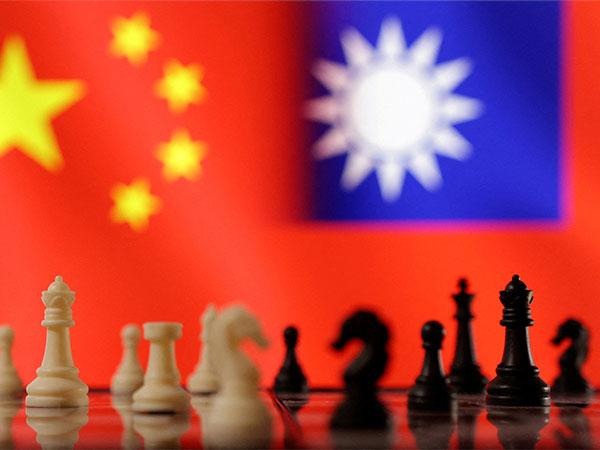Taiwanese-Chinese couple seek same-sex marriage recognition with legal battle
A same-sex couple, Ryan and Righ from Taiwan and China have launched a second legal challenge against Taiwan's authorities in a bid to have their marriage legally registered in Taiwan and allow Chinese partners to immigrate to Taiwan.

- Country:
- Taiwan
A same-sex couple with one partner from Taiwan and the other from China has entered their second legal battle with Taiwan authorities to have their marriage legally registered in Taiwan, so that the Chinese partner can legally immigrate there, Taiwan News reported. A same-sex couple, Ryan and Righ from Taiwan and China have launched a second legal challenge against Taiwan's authorities in a bid to have their marriage legally registered in Taiwan and allow Chinese partners to immigrate to Taiwan, Taiwan News reported.
Notably, while same-sex marriage is legalised in Taiwan, it is not legal in China. The couple submitted their US marriage certificate and other documents required for immigration, following the same process used for heterosexual couples.
The Taipei High Administrative Court heard the first arguments in a case brought by the couple, Ryan and Righ, on June 27. The couple is challenging the decision by the National Immigration Agency (NIA) of Taiwan's Ministry of Interior, which rejected their application for immigration to Taiwan through marriage for the Chinese spouse. The couple's application was first rejected in 2021 on the basis that the couple had not provided a certificate of marriage from China, Taiwan News reported, citing the Taiwan Alliance to Promote Civil Partnership Rights (TAPCPR), whose lawyers are representing the couple.
In 2022, the couple won a court case against the immigration office, which was ordered to accept their application and process their immigration request. However, the National Immigration Agency (NIA) refused to follow the court's ruling, citing that regulations for cross-strait marriages only apply to couples married in Taiwan, not in the US. The NIA and the Mainland Affairs Council (MAC) argued that there is no legal framework for handling immigration applications from couples married in the US.
The case returned to court last week, with the couple seeking to have their marriage recognised and the Chinese partner's immigration application accepted. TAPCPR issued a statement following the first hearing last week and accused the immigration department of "discriminating" against same-sex couples. TAPCPR Secretary General Chien Chih-chieh said that Chinese-Taiwanese heterosexual couples married in a third jurisdiction should not be asked to supply Chinese marriage certificates for their immigration applications.
Chien further said that as China has not legalised same-sex marriage, the immigration department's request for a marriage certificate makes successful applications for same-sex couples in this situation too hard to achieve, Taiwan News reported. The TAPCPR lawyer representing the case, Hsu Hsiu-wen, said that Righ, the Chinese spouse, has been determined by the immigration agency to pose no national security concerns to Taiwan. Because of this, there is no reason to reject his application, Hsu said.
Hung Yu-ling, a representative of the Cross-Strait Same-Sex Marriage Advocacy organization, has worked with numerous couples from Taiwan and China who are unable to live together in Taiwan due to immigration regulations. She affirmed hope that the Taiwanese government will eventually recognise the marriage rights of these cross-strait couples. Taiwan Alliance to Promote Civil Partnership Rights (TAPCPR) lawyers announced that the Taipei High Administrative Court will deliver a ruling on August 8.
Taiwan legalized same-sex marriage in 2019 and extended marriage rights to transnational same-sex couples in January 2023. However, due to cross-strait regulations, this decision did not apply to couples from Hong Kong, Macau, and China. (ANI)
(This story has not been edited by Devdiscourse staff and is auto-generated from a syndicated feed.)










